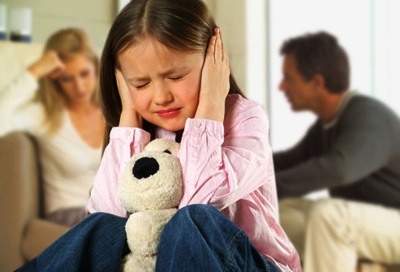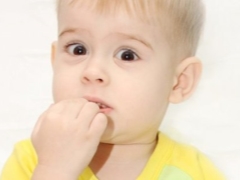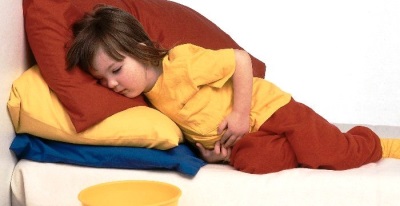Why a child bites his nails and what to do - advice from a psychologist
Gnawed, untidy, uneven nails - a problem that most parents sooner or later encounter. What to do, what are the causes of this harmful children's habit and how to deal with it - all this will tell our article.
What is it - a bad habit or a serious disease?
The habit of nail biting has a well-defined medical name - "onychophagia". Another term - “dermatophagy”, means an irresistible desire or craving for nibbling or pinching the cuticle. Most often, this habit is observed in children, starting around 6 years of age. At the age of 10, about one in three children suffers from it. Older children "bite their nails" more often - about every second.
Girls suffer from this disorder less than boys. This is understandable: by their nature, they have a higher resistance to stress.
Psychologists believe that this phenomenon should not be considered as a bad habit, but as a specific problem. And let it take its course is not worth it. It is necessary to determine the causes of its occurrence so that it can be easier and more effectively deal with it.
We recommend to watch the video recorded for parents by the Union of Pediatricians of Russia, in which experts give some practical advice to solve the problem of onychophagy:
The reasons
The habit of biting nails never arises from scratch. Usually it is preceded by changed life circumstances. This may be a change in a preschool or school, class, moving to another apartment and any serious change in a child’s life that he cannot cope with psychologically.
Nervous tension accumulates inside the child and turns into the appearance of a bad habit. In other words, bitten nails are nothing more than an attempt to “gnaw” or get rid of the problem that oppresses a child.
Causes related to physiology
- Problems with the central nervous system. This may be a tendency to neurosis, transmitted by inheritance, irritability and other diseases.
- Lack of vitamins in the diet of the child, poor nutrition.
- Diseases associated with the cardiovascular system.
- Parasites. Sometimes nail biting is associated with the presence of worms and other parasitic worms in the child’s body.
- Power problems. The child can not meet their nutritional needs, hence the disorder associated with biting nails. Most often, such problems are associated with a ban on sweets, diet, elementary malnutrition.
- Early weaning or nipples.
- Hygiene. Such a problem may occur due to too long and dirty nails, irregular hygiene procedures, etc.
The causes of socio-psychological nature
- Loss of a relative or a loved one. Psychological trauma and stress most often lead to the emergence of any bad habit.
- Strong fright can easily contribute to the occurrence of such a phenomenon.Loud sound, sudden movement and other reasons can particularly affect the psyche of a child of 2, 3 years. A child of 4 years old can be very afraid of screaming or barking dogs.
- Tension between parents. The unfavorable psychological climate in the family, constant abuse, conversations on high voices, aggression directed at each other, one way or another, will surely leave their mark on the fragile child's psyche. Especially if the child is in such an atmosphere for a constant and long time.
- Abrupt change of scenery. Most often this is due to the change of kindergarten, school, place of residence. Such a problem may occur after a long break in attending a preschool or school.
- Serious psychological stress. Today, many parents seek to maximally download the children's free time with tutors, clubs, sports sections, and developmental activities. This, of course, is not bad, but each child is individual and the load for him should be his own. Someone will easily endure a few extra classes, for someone it will be enough just one. Psychological overload of the child leads to fatigue, distraction and neurosis.

- The exact opposite of the previous point is the weak employment of the child. He does not know what to do with himself and begins to bite his nails from boredom.
- Bad example. If, in a family or close environment of a child, someone bites his nails, then the child will sooner or later try to do the same.
- Improper nutrition. Uncontrolled consumption of, for example, carbonated drinks or sweets, leads to an increase in the excitability of the child.
- Disruption of sleep. Most often this is due to the fact that the child stays up late behind the TV, computer, tablet. Regular lack of sleep leads to irritability, which the child tries to remove through biting nails.
- Low self-esteem. Most often, such problems occur with children 8, 9 years and older. Studying at school, attending sports clubs or groups: parents begin to demand that a child achieve certain results, which he, for various reasons, cannot achieve. Hence the irritation of the parents and the decrease in the sense of self-worth in the child. He begins to fear that his parents will scold him and begins to bite his nails, thus throwing out his insult.
We recommend watching a video in which a practicing psychologist examines the reasons why children begin to bite their nails:
Side effects
Regular biting of nails can lead to a number of problems, including:
- nail and cuticle damage;
- nail growth disorder;
- tears of the cuticle;
- infection in open wounds;
- regular biting of nails can also lead to a number of dental problems, for example, damage to the gums and their subsequent infection;
- diseases of the gastrointestinal tract, as well as diseases caused by viruses and microbes;
- psychological problems (isolation, lack of communication, etc.).
What to do: tips of psychologists
Naturally, in order to eliminate the problem itself, it is necessary to first identify the causes of its occurrence. And the sooner this happens, the less painful the weaning from a bad habit will pass.
This is what psychologists advise on this:
- you should never scold a child for this habit, especially to beat his hands or spread his fingers with something sharp and bitter;
- talk with your child about potential diseases and problems that may arise when biting your nails;
- to comply with the child's established sleep pattern, wakefulness, and nutrition;
- develop fine motor skills (modeling, drawing, playing constructor, musical instruments, etc.);
- regular hand hygiene;
- provide a normal psychological environment in the child’s environment;
- encourage the child to express his emotions, and no matter whether positive or negative;
- talk with the child about his concerns. A child can express his problems not only in conversation, but also in drawing, for example.
Folk methods
If the advice of a psychologist does not lead to the desired result and the child, rather, out of habit continues to bite the nails, then you can use one of the folk remedies.
- Lubricate the child’s nails with something bitter. Many parents use mustard or agave juice for this purpose. The method is ineffective and not very pleasant for the child. It is best to use a lacquer specially created for this purpose, for example, Non-Causal. The child’s nails are varnished, and now every time the fingers are brought to the mouth, the bitter taste will not let the baby forget that it is impossible to do so.
- If the emergence of this habit is associated with constant psychological stress, then it is necessary to teach the child to take it off with the help of a simple exercise or breathing exercises. The first option is to often clench and unclench fists. Breathing exercise: the child inhale and exhale slowly and deeply for 5 minutes. Such constant control over breathing will help to significantly reduce the level of emotional tension of the child. To exercise interested child, you can give him a favorite toy, for example.
- Beautiful manicure. Mom, making a manicure, can involve her daughter in this process. To show a set of nail care tools, to explain why this or that object is needed, to make a baby a manicure and even to cover the nails with a special children's varnish is an excellent and very visual way to show how great it is when the nails are kept in perfect order. And this concerns not only girls, but also boys. Neat, evenly-cut nails are always beautiful, we must remind the children about it more often!
- Formation of the reflex. To do this, for example, a soft bracelet with an elastic can be put on the child’s hand. As soon as the fingers reach to the mouth, gently pull back the gum and "click" on her child's hand. The method is quite fun and effective.
Starting the struggle for weaning the child from the habit, we should not forget that this process requires perseverance and patience! The main thing is not to deviate from the intended goal and then everything will turn out!
To learn how to wean the baby to bite his nails, look in the program "To live healthy."
















